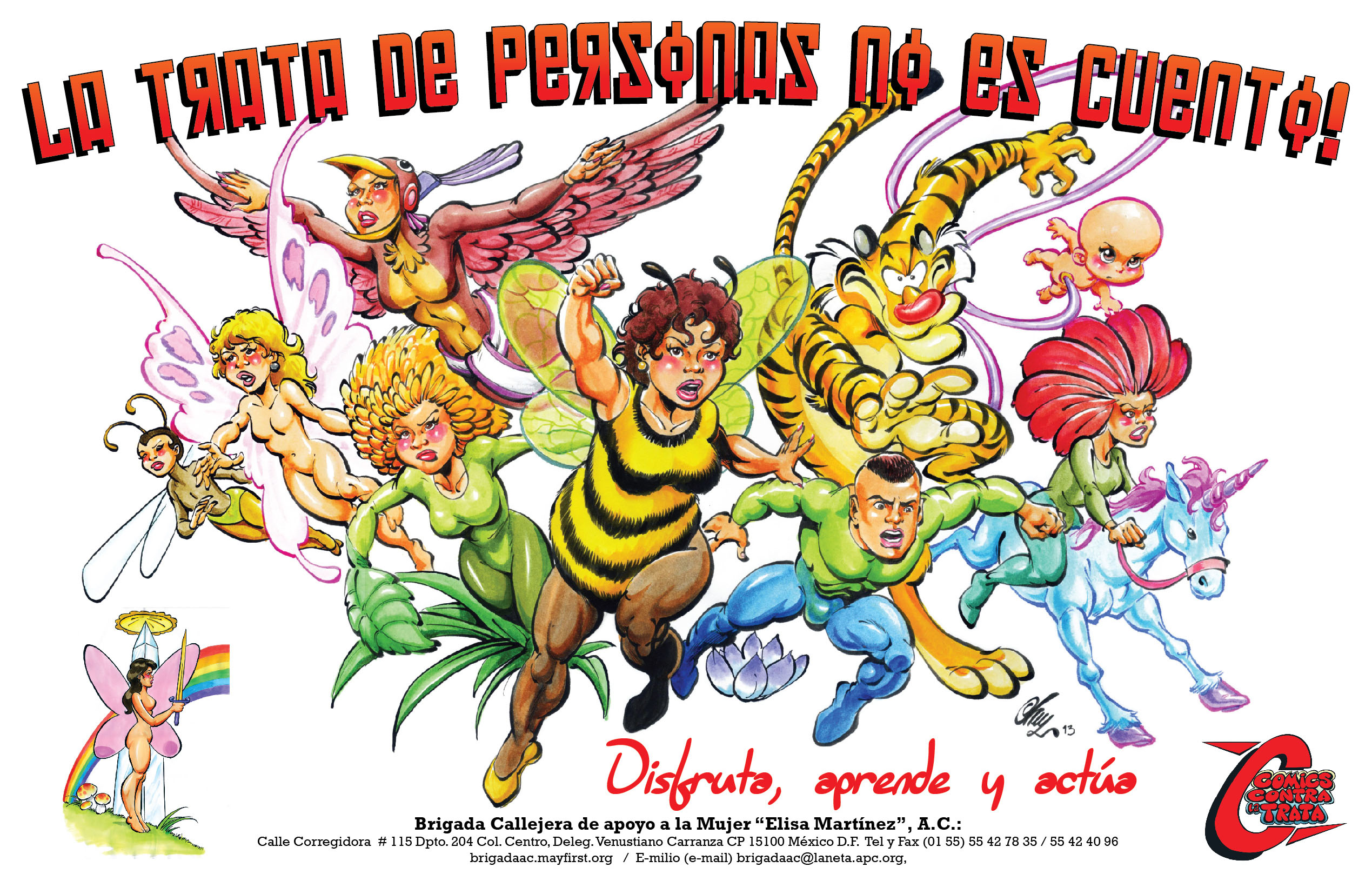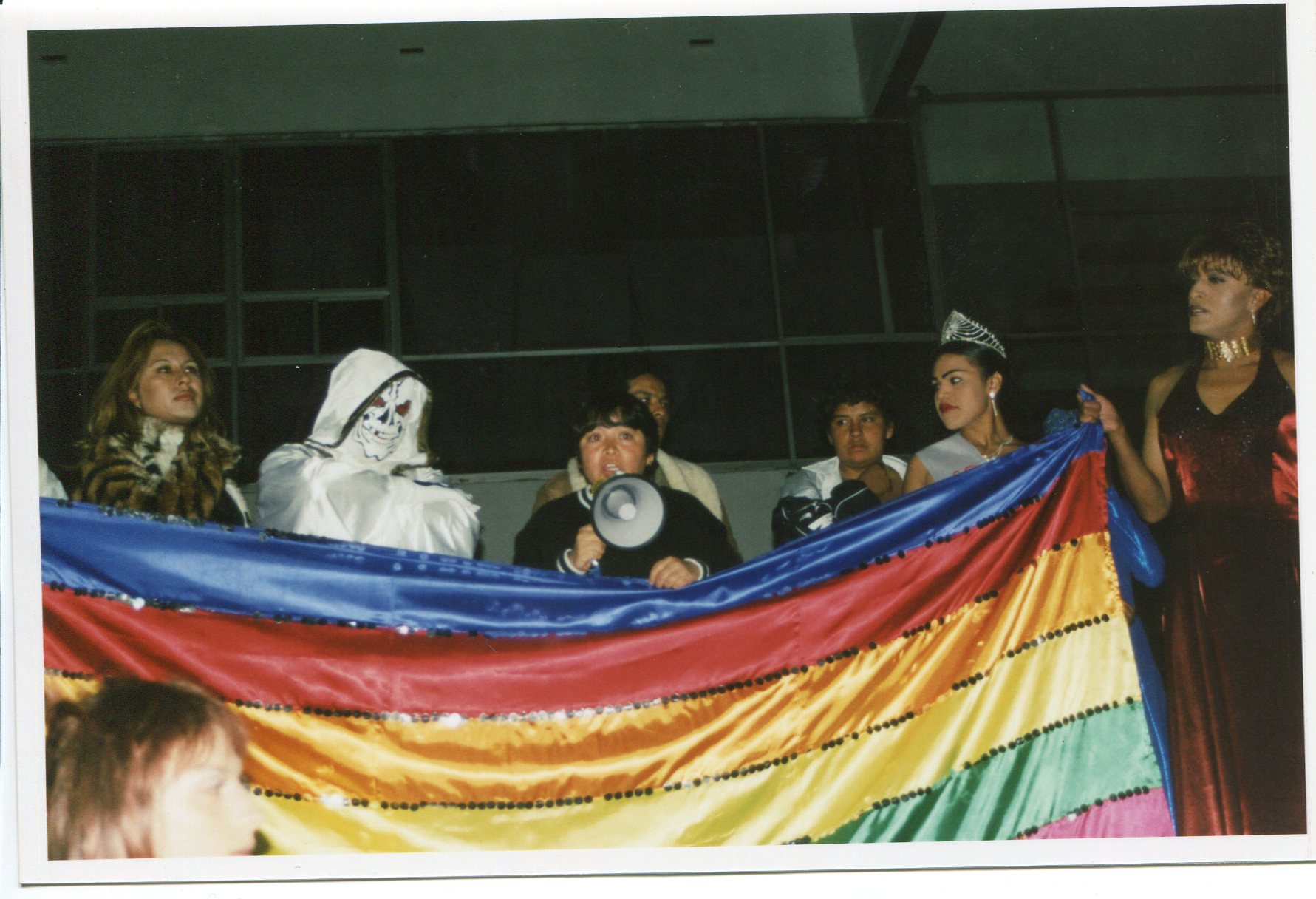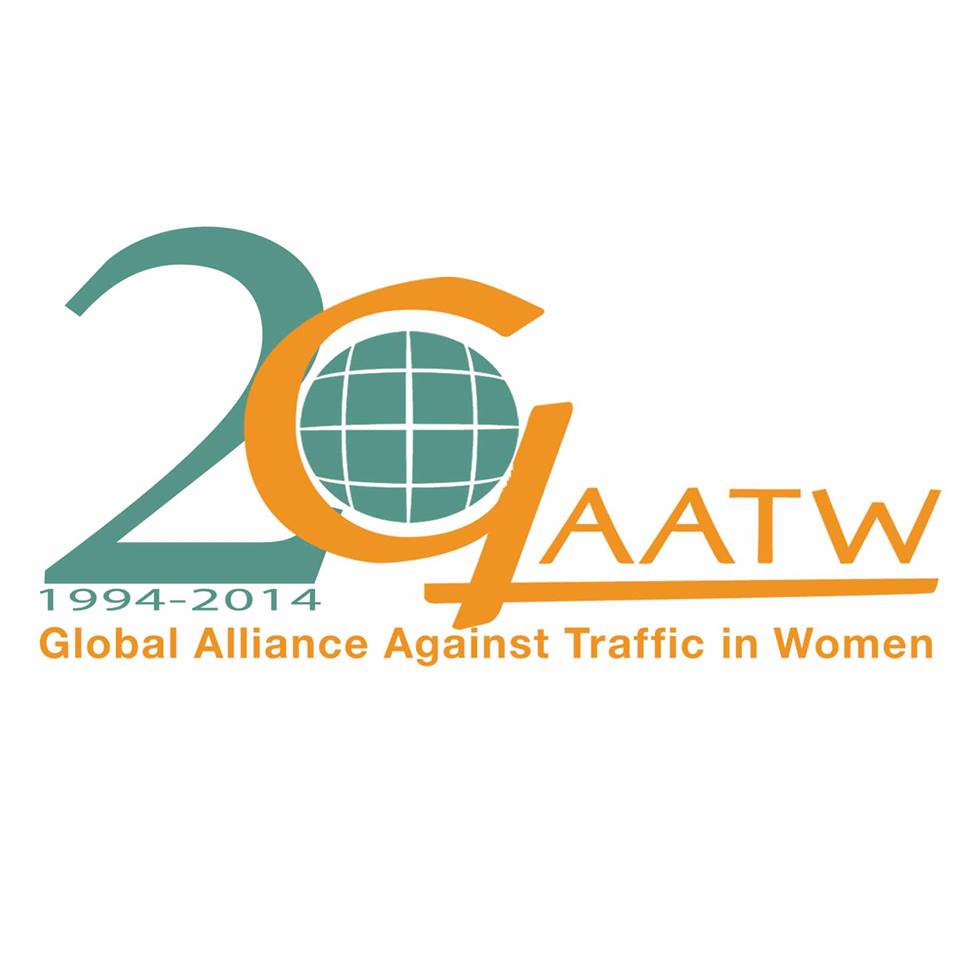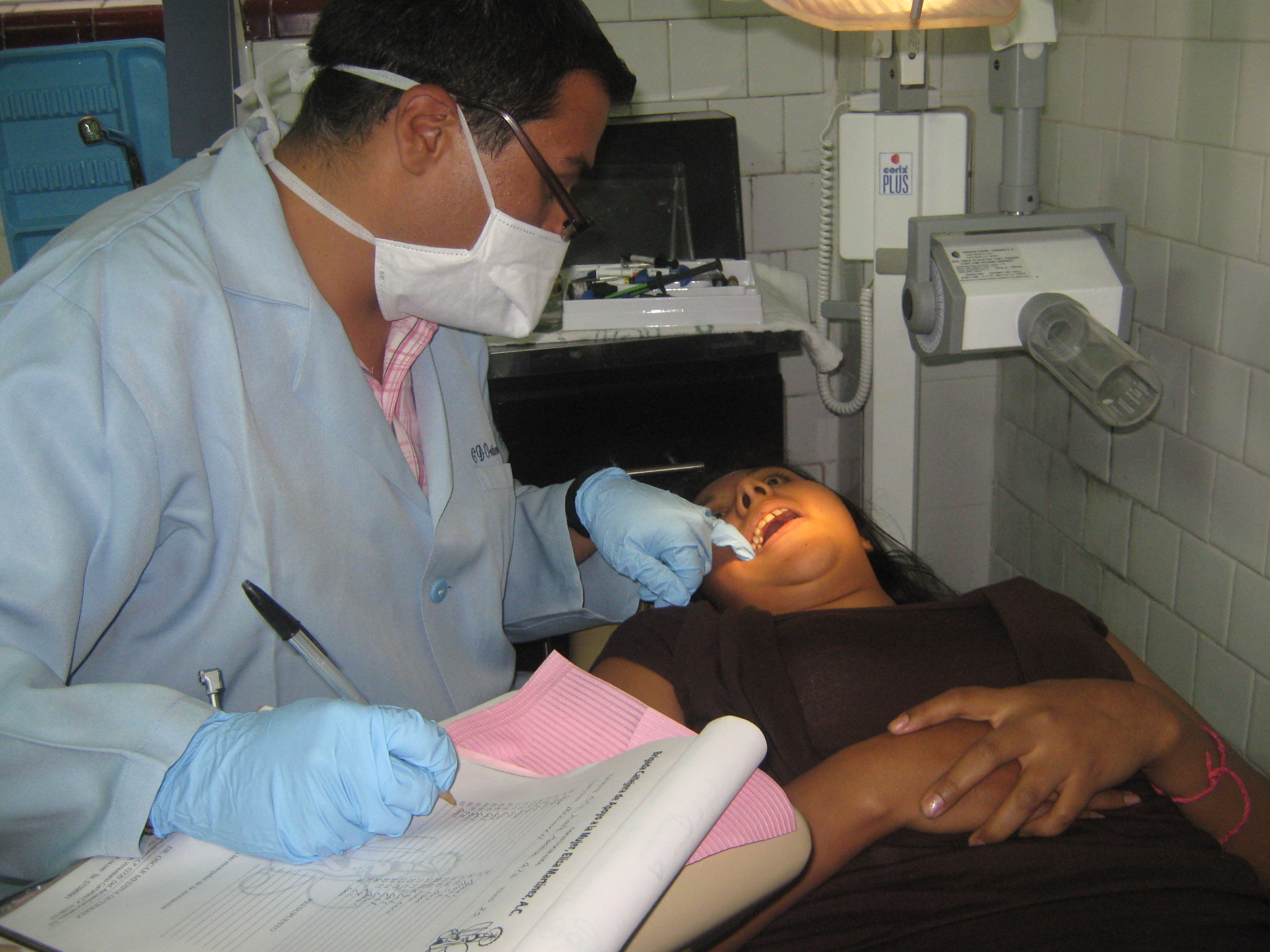
An end to the shame: stigma and political participation among Mexican sex workers
https://www.opendemocracy.net/marta-lamas/end-to-shame-stigma-and-politi...
Marta Lamas 9 December 2016
Shedding feelings of shame relies on the politicisation of a stigmatised identity, and on opening up new lines of action and resistance.
The openMovements series invites leading social scientists to share their research results and perspectives on contemporary social struggles.
Protest against feminicide. Used with permission.Sex workers are a group that face major obstacles in terms of their political participation. One of these hurdles is the stigma that is associated with the centuries-old ostensibly female term, ‘prostitution’. Another is the neo-abolitionist position which has led many people to propose the eradication of the sex trade due to its intermingling with trafficking. Both of these generate a context that produces shame for the majority of sex workers, making it difficult for them to vindicate themselves and fight for their rights.
This context is relatively recent: starting in the 1970s — hand-in-hand with the cultural changes that stimulated the feminist movement — diverse groups of sex workers in different countries began to systematically voice their desire for sex work to be considered legal. They participated in local gatherings and global meetings to confer on their working conditions, while some went on strike and others threatened to expose the identities of their clients. Progress was made on different fronts up until the end of the 1980s through unionisation, the repeal of discriminatory laws, debates on sexual freedom and the establishment of alliances with other movements and groups.
However, from the 1990s onwards, their organisational impetus was faced with a neo-abolitionist campaign driven by the moral crusades of Ronald Reagan and George W. Bush who, backed by both religious groups and feminists opposing violence against women, managed to deploy a global discourse against the sex trade. Little by little, fear and unease regarding the trafficking of 'sex slaves' began to dominate the international discourse on the sex trade which resulted in the UN Protocol on trafficking,[1] as well as a worldwide policy of victim ‘rescue’.
Brigada Callejera in Mexico
In Mexico the process of sex worker organisation to demand labour rights has been permeated by these events. It was not until the mid-1980s that groups of workers rallied together to contest police raids, resulting in the appointment of ‘representatives’ recognised by the government of Mexico City, as well as the establishment of so-called ‘tolerance zones’: sites on the street where workers were allowed to ‘stand’ in order to attract clients. This corresponded with the first reorganisation of sex in public places which – at least at that time – offered greater safeguards.
Little by little, the socio-political capacity of certain groups of sex workers was increased, enabling them to fight for the recognition of the occupational nature of their work. In the mid-1990s, and in close liaison with a civil association called Brigada Callejera en Apoyo a la Mujer “Elisa Martínez” (Street Brigade in Support of Women “Elisa Martínez”), the foundations were laid for collective actions of reflection and debate. Brigada Callejera promotes, trains and carries out advocacy actions, working in small operative groups. Their contact with sex workers is, as their name suggests, on the streets, but they also show solidarity with women who live in situations of discrimination, such as indigenous women and migrants. This non-profit, non-partisan and secular civil association, comprising sex workers, other supportive women and a board of trustees composed of health, public policy and media experts, is now a specialist in defending the human, civil and labour rights of sex workers, as well as in the prevention of HIV/AIDS and other sexually-transmitted diseases.
Struggle for legitimacy
Used with permission.Since 1993 Brigada Callejera has promoted and accompanied a process of political awareness and public affirmation for sex worker identity. One of its objectives is to persuade Mexican society — specifically the working class and the state — to change its denigrating perception of this activity. Since 1997, Brigada Callejera has coordinated nineteen Encuentros Nacionales (national meetings) where relevant issues of the day have been debated; and where joint actions with other groups have been programmed, particularly those directed at obtaining dignified working conditions and respect for the human and civil rights of all people involved in sex work. Substantive political issues have been analysed and discussed in all of the Encuentros alongside the implementation of training workshops.
In the choice between being a 'victim' and a 'whore', many workers opt for the former
During the first Encuentro Nacional in 1997, the importance of reclaiming work rights through unionised struggle by independent sex workers was raised. And shortly thereafter in 1999, Brigada Callejera and la Red Mexicana de Trabajo Sexual (the Mexican Network of Sex Work) agreed that the Ángeles en Busca de Libertad cooperative (Angels in Pursuit of Freedom) would petition the Mexican labour ministry to establish for sex workers the credentials that are granted to other self-employed street vendors with no fixed wages, such as shoe-shiners, mariachis, musicians, buskers, car-washers and lottery ticket vendors. Such a license would be physical evidence of the permission granted by the local government of Mexico City for sexual services to be offered in public places. Credentials present minor protection against police and judicial raids. Over the course of a decade, their request was denied on different occasions despite the insistence of Brigada Callejera and la Red Mexicana de Trabajo Sexual. At the same time, they continued to meet and debate internally on the problems and the violence that they faced, due in particular to the police and judicial extortions.
At the same time, the neo-abolitionist position was advancing, with declarations that the magnitude of trafficking was ‘immense’ and that ‘the problem was growing’. These were strategic declarations, formulated to attract media attention, finance and the interest of those responsible for creating policy. Badgered by this incendiary discourse, police across the country carried out ‘anti-trafficking’ raids on nightclubs and cabarets. These police operations have become violent raids against sex workers, who are criminalised, incriminated and jailed for crimes that they did not commit — should they not agree to declare themselves victims of trafficking. And here again the stigma arises: in the choice between being a 'victim' and a 'whore', many workers opt for the former, fearful for their reputations and even of just appearing in the press.
Although the neo-abolitionist crusade visualises the phenomenon of the sex trade in black and white, with no recognition of the nuances and complexities of sex work, one fact however is certain: sex work continues to be an activity chosen by hundreds of thousands of women with no coercion other than their economic situations. For this reason it is necessary to understand that rather than there being a clear contrast between unforced labour and forced labour, what exists is a continuum of relative freedom and coercion.
Rather than there being a clear contrast between unforced labour and forced labour, what exists is a continuum of relative freedom and coercion
Since women have different social positions and educations, sex work is in certain cases chosen because it is empowering and liberating to earn money on one’s own terms, while in other cases it is reduced to a situation of precarious survival, with overtones of guilt and shame. Many women become involved through economic despair, and others are introduced to it through drugs. But it must not be forgotten that, aside from these appalling situations, there are also women who make a pragmatic assessment of the labour market and use the strategy of selling sexual services for social mobility, to become independent, and even to pay for a university education or get a business going. In other words, while there is the problem of abhorrent and criminal trafficking, with women being kidnapped or deceived, there is also a sex trade which women enter and leave freely, with some of them making money, helping family members and even getting married. For this reason, those women who maintain that it is a job with economic advantages are correct, but not in all cases, and those who insist that prostitution is violence against women are also correct, but not in all cases.
The trafficking of human beings undeniably exists and is a dreadful criminal scourge, of which sexual exploitation is just a part. But the discursive manipulation of neo-abolitionism distorts the sex trade phenomenon, throws up a smoke screen on the structural conditions that force poor women into the sex trade, and endorses puritanical positions on sex.
The arrival of regulation
As a result of this problematic situation, workers of the Red Mexicana de Trabajo Sexual and Brigada Callejera in their internal discussions have uncovered the link between governmental extortion practices and the lack of the recognition of their labour rights on the one hand, and the persistence of stigma on the other. It was neither fast nor easy, but the emphasis given to internal debate led to the strengthening of the political community of sex workers.
Insisting on the importance of acknowledging their work status, 100 members of the Red Mexicana de Trabajo Sexual once again requested credentials in August 2012. In the absence of a positive response, they decided to take the matter to court. Following a remarkable consensus in the debate between workers a collective decision was made: a professional would represent them in court. A lawyer with similar political views filed an amparo (constitutional relief) action for the violation of the right to work in peace as non-wage sex workers and, specifically, for the violation of the right to claim credentials.
A meeting of sex workers at Brigada Callejera. Image: Esquerra Anticapitalista/Raúl Zibechi. Some rights reserved.Their endeavours were underpinned by their experiences of struggle and shared vision regarding the transformation of the structural conditions of their work. Nevertheless, in daily politics, one has to mediate. Regulation was the lesser evil to provide sex workers with health, education and training opportunities to accompany workers’ rights. This signifies their recognition as non-wage workers, with licenses allowing them to open bank accounts or request loans on declaring their sources of income. The credentials are also a form of protection against ‘anti-trafficking’ police raids.
Sex workers in Mexico are trapped in a legal limbo: individual prostitution by adults is not prohibited but also not regulated, and consequently some forms of work organisation (in apartments or clubs) can be considered to be ‘sexual exploitation’ or pandering. In view of this discriminatory situation, sex worker activists moved to take on a specific political stance: to present themselves as workers and claim the recognition of their rights as such. This meant not just assuming the stigmatised identity of a sex worker, but also taking legal action against the government. The decision to take this issue to court was the right one and a turning point in the process.
Clearly, the socio-cultural context sex workers face is very important — and complex. Puritanism rejects commercial sex and associates it with immorality, while the street worker personality conjures up a cocktail of fear and anxiety (infections, crime, etc.). With regard to the former, sex work subverts the traditional model of femininity. It provokes adverse reactions because it infringes upon the cultural ideal of chastity and feminine modesty. The underlying issue is precisely the existence of a double moral standard: women’s sexuality is assessed differently to men’s. The division that is established between ‘decent’ women and ‘whores’ reinforces social expectations with respect to feminine sexuality: women must only have sex within a loving relationship. 'Whore' is a negative epithet assigned to women who defy received cultural ideals of femininity, and includes women who have casual or recreational sex, although at no charge.
Because of the stigma of ‘whore’ the majority of sex workers refuse to publicly speak up for their rights. This stigma produces shame and many sex workers apply it to themselves through the mechanism of symbolic violence, an ‘invisible’ form of domination. This 'shame' is an obstacle to their political participation.
Workers who have already obtained their licenses are a clear example of agency powered by organisation and political work. Their attainment of such licenses marks the beginning of a policy of rights and recognition — which awards them public and legal identity in society, and above all, in their own eyes. Since the stigma of ‘whore’ generates shame, sex workers use pseudonyms and many of them lead double lives; only a few can openly reveal their work within their immediate families. In spite of this, the fear that surrounds them is considerable. It is one thing for relatives and close friends to accept their work but quite another for a family woman to openly defend her rights, letting many see that she is a whore. For this reason, the weight of the stigma has also functioned as an obstacle to the political organisation of sex workers.
Sex work subverts the traditional model of femininity
Whores versus ‘decent’ women
In the case of sex workers, the shame is due to the division between whores and decent women (madonas). Therefore, when journalists try to photograph them they hide their faces and in their presentations they traditionally use masks. As a result, the media was taken aback when they appeared with faces uncovered as they received their non-wage workers credentials. Reporters were astounded that the sex workers allowed themselves to be photographed and interviewed, and that they showed their faces “without a sense of shame”. Shame, however, was absent.
This is the result of the political work that Brigada Callejera has carried out, which not only vindicates the political positioning of sex work but has also set in motion a large-scale intervention that has raised awareness of the political without neglecting the personal. Their model proposes central political discussions but also encourages the women to share their personal experiences: “these are my wounds, this is my life.”
If workers got together only to tell each other how much they suffered or how bad things were, there would be no political impact. Comrades at Brigada Callejera want sex workers to learn to think, and understand how stigma is created and how social injustice functions. To provoke and fuel workers’ resistance, they tell them: take the floor. Speak. But reflect as well. Think. Write. And Brigada Callejera, by way of the Aquiles Baeza journalism workshop — where they can tell their personal stories — offers them both the conceptual tools to think in new ways, and the means and space in which to do it.
Red crosses displayed in protest against feminicide in Mexico. Used with permissionApart from the process of deconstructing the symbolic violence, Brigada Callejera proposes that they meet with others who share common experiences. Bonding with others becomes an instrument of public affectivity. It is also illuminating to situate many problems in the power relations of macro-structural conditions, and for this it is necessary to go beyond personal experience and to understand that experience always resonates with those of others. This is the way to avoid guilt and reach a different level of reflection and commitment.
This combination of self-esteem, support, politicisation, learning and showing affection has a trigger — commitment, a radical and absolute commitment from Brigada Callejera which is in turn reciprocated by the workers. This process was assisted by the Zapatistas: participating in the ELZN’s Otra Campaña, sex workers went to indigenous communities and to poor neighbourhoods to listen to the injustice, discrimination and dispossession experienced by many others.
A critical perspective
Shedding feelings of shame relies on building political awareness and establishing a training process which, through the politicisation of a stigmatised identity, opens up new lines of action and resistance. Accordingly, a new critical perspective regarding trafficking that underlines the many other forms of non-sexual forced labour, such as farm work, domestic work and maquila, was developed. Additionally, sex workers point out that the most efficient public policy intervention in relation to the prevention of workplace violence is not the prohibition, but rather a transformation of the structural conditions that lead people to pursue such lines of work.
The critical perspective of Brigada Callejera redirected the outlook of sex workers towards neoliberalism and the way it functions, and drew attention to the workers’ rights which can allow them to work independently, away from the mafia. The regulation of sex work, as the means of survival of thousands of impoverished women, discourages macho abuse in all its forms — by clients, the police, officials, and even their partners. That is why their labour must not be conflated with trafficking.
[1] The United Nations Convention Against Transnational Organized Crime is integrated by three fundamental commitments: A protocol against the smuggling of migrants; another against the illicit manufacturing of and trafficking in firearms and the last, known as the Palermo Protocol, “to prevent, suppress and punish trafficking in persons, especially women and children”. It was adopted by Mexico on November 15, 2000.
How to cite:
Lamas, M. (2016) An end to the shame: stigma and political participation among Mexican sex workers, Open Democracy / ISA RC-47: Open Movements, 9 December. https://opendemocracy.net/marta-lamas/end-to-shame-stigma-and-political-...
About the author
Marta Lama is professor of anthropology at the National Autonomous University of Mexico and a leading feminist researcher and activist.
- Inicie sesión o regístrese para comentar









